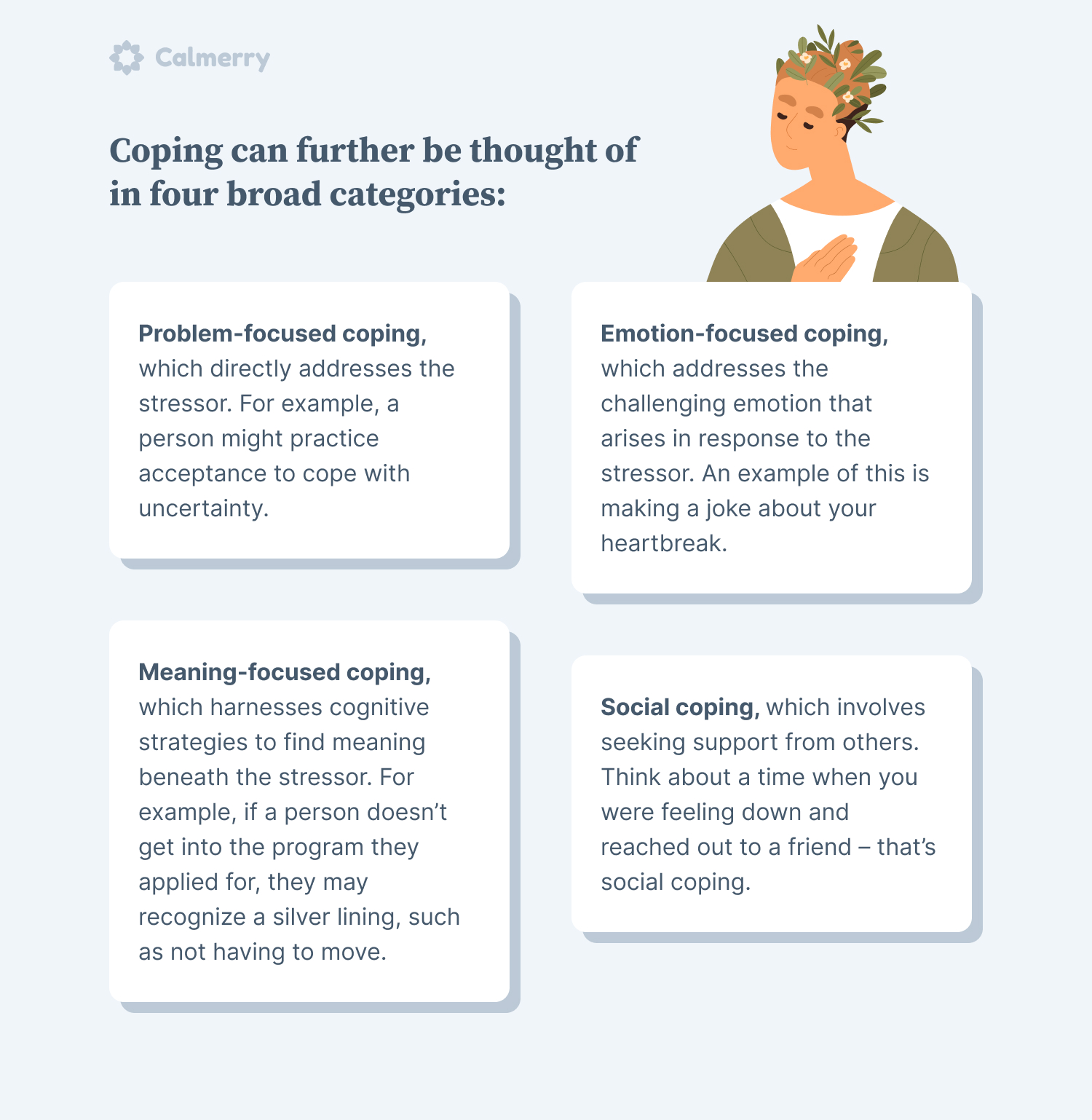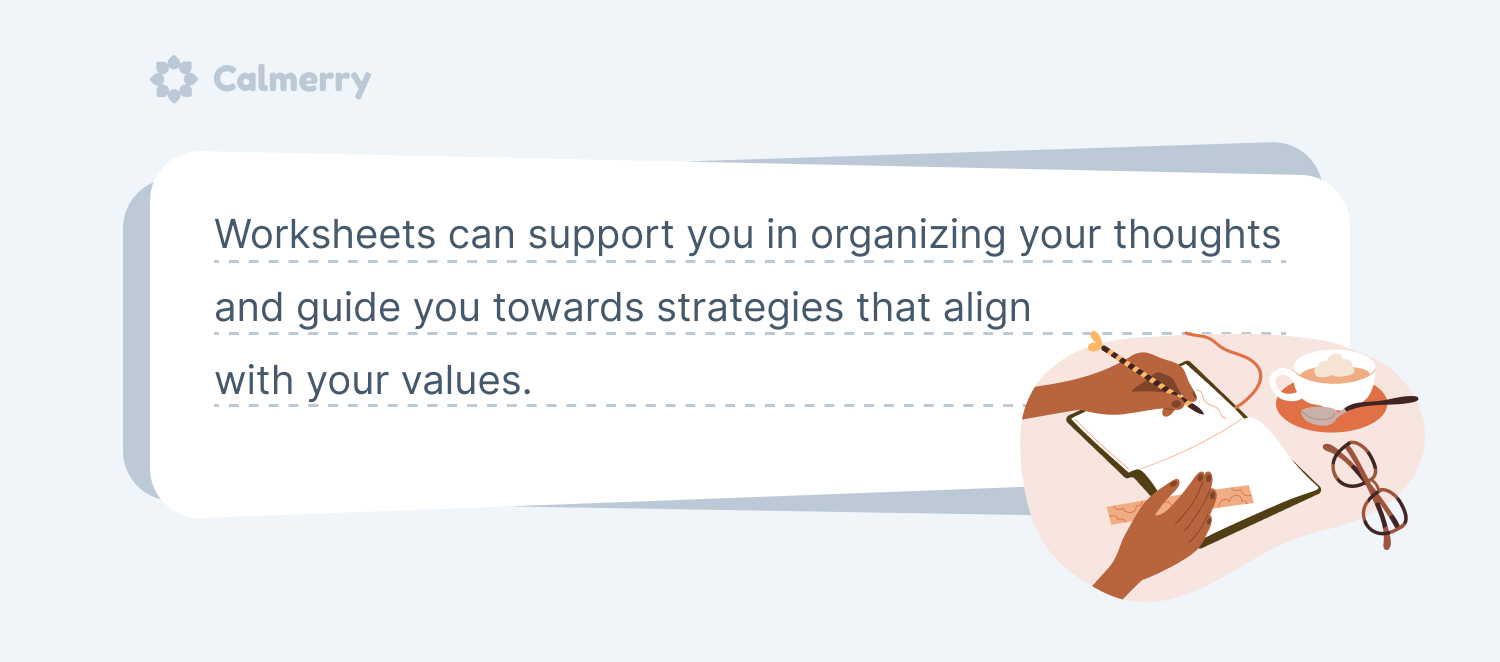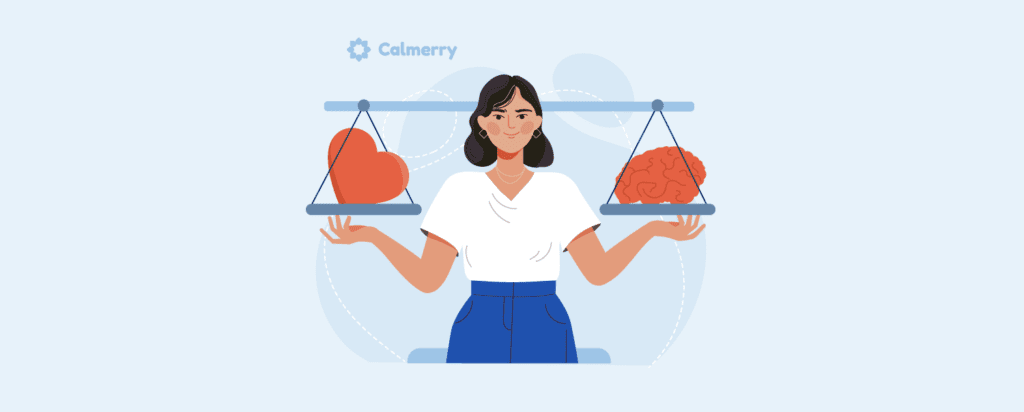10 Coping Skills to Help You Manage Difficult Emotions

As wonderful as life can be, it’s also hard. We all experience rejection, loss, guilt, shame, illness, powerlessness, and disappointment. The good news is, we also have the tools to cope with these challenging emotions and experiences.
What are coping skills, exactly?
In contrast to defense mechanisms, which are subconscious strategies that people often use in an attempt to protect themselves, coping skills are defined as conscious and voluntary responses that we use to reduce or tolerate distress.
You’re denied the raise that you asked for at work, ghosted by a person you were interested in, or find out that you weren’t included in a group activity. These big and small rejections can lead to upsetting feelings that are often hard to move forward with. Yet it is in these moments that we can call upon our coping skills.
Coping can either happen after a challenging emotion arises (reactive coping) or pre-emptively as a way of tolerating future difficulties (proactive coping).
Coping can further be thought of in four broad categories:
- Problem-focused coping, which directly addresses the stressor. For example, a person might practice acceptance to cope with uncertainty.
- Emotion-focused coping, which addresses the challenging emotion that arises in response to the stressor. An example of this is making a joke about your heartbreak.
- Meaning-focused coping, which harnesses cognitive strategies to find meaning beneath the stressor. For example, if a person doesn’t get into the program they applied for, they may recognize a silver lining, such as not having to move.
- Social coping, which involves seeking support from others. Think about a time when you were feeling down and reached out to a friend – that’s social coping.

Are all coping strategies helpful?
It’s important to note that some coping mechanisms, such as emotional suppression or experiential avoidance can actually make things worse for us. These are often called maladaptive or unhealthy coping strategies.
Imagine you’re feeling anxious about moving to a new apartment. You don’t know if you’ll like your neighbors, and you’re not sure how you’ll feel living there. You respond by staying inside and avoiding interactions with any new people. This ultimately causes you to feel isolated and lonely.
10 coping strategies that you can try now
What works for one person may not necessarily work for you. It’s important to explore different coping strategies and find the ones that make sense for your life. Your best friend might play an instrument to calm her nerves while your colleague might take ten square breaths.
The only boundaries to consider are that healthy coping strategies help in both the short term and the long term. Or, at the very least, your tools for coping shouldn’t be causing any long-term harm.
Below are 10 healthy coping strategies that you can explore when facing a challenging situation or difficult emotions. Take note of what works for you and build from there.
1. Identify your emotions
We often don’t quite know what we are feeling at any given time. Let’s try an experiment: Take a few minutes to name all of the emotions that you are feeling right now. Pause and say each one out loud.
For many of us, that’s not an easy exercise. Yet research shows that people who are able to differentiate their emotions are also better protected from symptoms of depression and anxiety. As you practice, you’ll get better at it. And you can always refer to the feelings wheel for guidance.
2. Prioritize self-care
We’re often working hard to please the people around us. So much so that sometimes we lose track of ourselves. This can lead to the depletion of our energy and capacity to engage with the world.
Think about some ways that you can invest in a healthy body, mind, and spirit. This might mean setting aside time to cook a nutritious meal, go on your favorite hike, laugh with a friend, sleep in, or meditate for 30 minutes when you wake up.
It might feel impossible to make the time to do these things, especially if your to-do list of chores is constantly growing. It takes a shift in perspective to prioritize self-care and to include it as an essential part of your day.
3. Recognize that sometimes, it is what it is
Acknowledging your current reality doesn’t mean that you won’t take steps to change it. In fact, the basic acceptance of ‘what is’ is the first step towards recognizing what is working for you and what you want to change. If we resist or ignore the things that make us uncomfortable, we’re typically only prolonging our pain while our emotions fester.
As an alternative, try practicing acceptance. One of the hardest yet most powerful forms of acceptance is self-acceptance. Try starting there.
For example, if a person you like starts retreating from you, notice that it is happening and separate that fact from the stories you tell yourself about how you pushed them away. From there, try brainstorming ways to improve the relationship while also finding solace in the acceptance that right now, it is a challenge.
4. Find what brings you comfort and make a list
For some of us it’s baking, for others, it’s reading in bed or talking to a loved one. And for many of us, we are drawn to less healthy comfort habits: an extra glass of wine, doomscrolling, online shopping, or eating a box of cookies.
In order to set yourself up for success, make a list of several healthy ways to comfort yourself when you feel hurt or anxious. These might include calling a friend, taking a walk with your dog, writing in your journal, practicing loving-kindness meditation, listening to a podcast, cuddling with your cat, gardening, doing yoga, or cooking a meal.
If you’re not sure where to start, try using a worksheet designed to help you explore healthy coping strategies. These worksheets can support you in organizing your thoughts and guide you towards strategies that align with your values.

5. Recognize your thoughts as thoughts
Just because you think something, it doesn’t make it real. Another way to put it is that you don’t have to believe everything you think. When you do, your negativity bias can take over and create excess fear and stagnation.
It’s common to have self-critical thoughts or imagine the worst-case scenario. While it can be helpful to weigh risks and sort through our options, these stressful thoughts can also be emotionally depleting.
When we believe all of our thoughts, we tend to miss what is happening in the here and now. So next time your inner critic starts to get loud, practice noticing the thoughts as thoughts rather than the absolute truth. Explore whether anything within the thoughts serves you, and let the rest pass through your mental landscape just as clouds pass through the sky.
6. Practice mindfulness
An alternative to getting stuck in past regrets or a scary and painful future is the present moment. Recent research has found that mindfulness can buffer against the distress of rejection and other challenging experiences.
Defined by Jon Kabat-Zinn, mindfulness is “the awareness that emerges through paying attention, on purpose, in the present moment, and non-judgmentally.” In other words, when we are mindful, we become receptive and attentive to the events and experiences that are happening right now.
So rather than trying to control or change our emotions (“I shouldn’t be jealous”), which can drain our energy, you might try sitting with your thoughts and feelings and letting them come and go as they are. Notice what they feel like in your body, and notice how they shift and change over time. You might even try some grounding exercises, which help bring your awareness to the here and now.
When you do this, be curious with yourself. Explore what is happening in your inner world, right in the moment, and be present with it. This not only helps keep ruminations and negative thinking patterns at bay, but also helps you get to know yourself and befriend yourself.
7. Tap into meaningful moments
Think about a time when you felt that your life had a purpose. Often these arise when we are acting in service of something greater than ourselves. This might be a spiritual practice, volunteer work, or supporting a friend.
When we use our skills, talents, and gifts towards something productive and positive, we build that sense of purpose. Remember that now is the time to live the life you want to live and be the person you want to be – don’t put that off for later.
8. Seek healing from within
Relationships are important for living a good, joy-filled life. However, our friends, families, and partners are not here to save us. In fact, our most supportive and healthy relationships have a foundation of recognizing one another as capable and resilient.
So rather than searching for someone to rescue you, which can leave you trapped in a narrative of helplessness, know that we have all of the resources we need to ground ourselves. When we start to take responsibility for our lives, we realize that we truly have the ability to create the life we want to live.
9. Make peace with uncertainty
As humans, we often find ourselves in an interesting predicament. While our brains are wired to resist uncertainty, we also live in a reality where at a basic level, everything in our lives is uncertain at all times. We never really know what the future will bring. And our best-laid plans can just as easily be shattered.
Resistance to this uncertainty often only prolongs our suffering by amplifying challenging emotions. Yet, if we can practice living with ambiguity and uncertainty, we can also find peace.
This doesn’t mean a life free of disappointment, sadness, or anger, but rather allowing for the full spectrum of emotions and experiences as a part of our life. And instead of expecting something specific from the future, we can focus on how we’ll create the experiences we want to have.
10. Try therapy
What remains in the unconscious often becomes our fate. So when you’re struggling to cope, trapped in unhealthy patterns, or seeking a deeper understanding of yourself, therapy can be a powerful ally.
Whether in person or online, a supportive and insightful therapist can help shepherd you through some of your most deeply personal experiences by working with you to recognize and express your emotions, integrate difficult experiences, and live with more joy and connectedness.
online therapy
live video session


